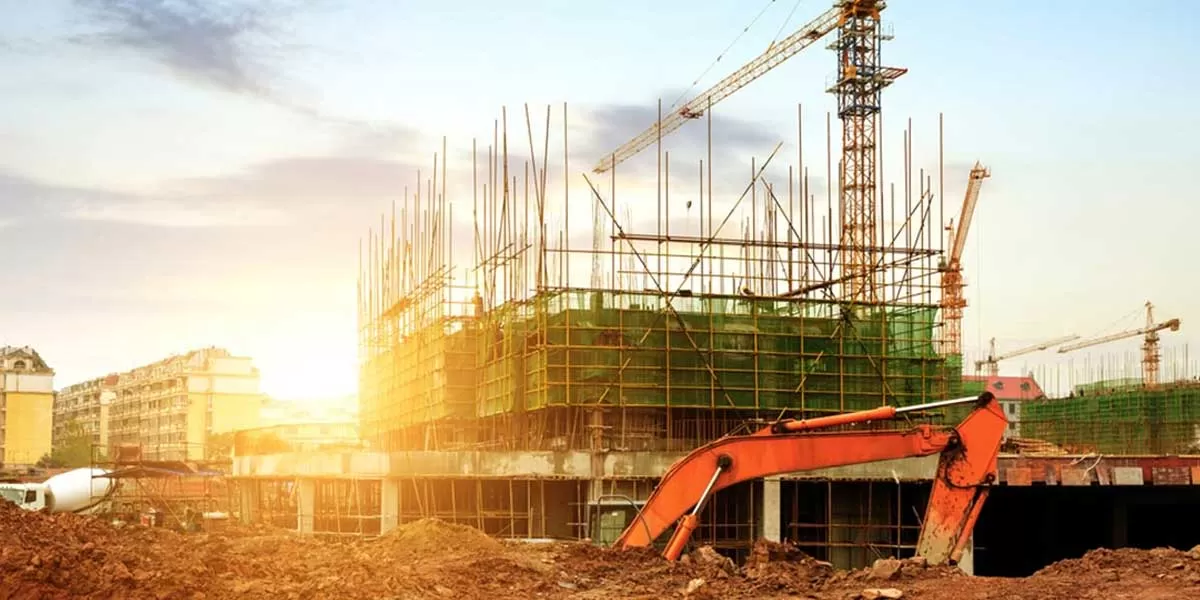On October 3, 2024, the Supreme Court of India granted a significant ruling that allows input tax credits (ITC) on construction costs for commercial buildings intended for leasing, a decision poised to stimulate investment in the commercial real estate sector. This ruling is expected to ease the financial burden on tenants renting commercial spaces.
Major real estate companies such as DLF, Max Estates, and Bharti Realty are likely to benefit, as this classification enables their buildings to be considered as "plant and machinery." Furthermore, this ITC benefit extends to the rental payments made for commercial properties by various industries.
Importantly, the Supreme Court's decision also allows for the retrospective application of ITC benefits, prompting the industry to seek clarity from the government on whether similar relief can be extended to other sectors, including ports, airports, factories, warehousing, and data centers.
The ruling originated from a writ petition filed by Safari Retreats in the Odisha High Court, which sought input tax credits on services and goods used in constructing immovable property, excluding plant and machinery. The Odisha High Court interpreted Section 17(5)(a) to allow ITC claims. Following this, the revenue department challenged this interpretation in the Supreme Court, claiming that GST rules prohibit ITC on immovable property.
Several petitioners subsequently approached the Supreme Court to question the constitutional validity of the provisions, which the Odisha High Court did not address. In 2023, the Supreme Court reserved its decision until this week, when Justices Abhay S. Oka and Sanjay Karol delivered their judgment.
The ruling tackled three pivotal questions, including whether "plant and machinery" in Section 17(5) differs from "plant or machinery" in Section 17(5)(d), and the constitutional validity of provisions in Sections 17(5)(c) and (d).
In a comprehensive judgment, the Court clarified that "plant and machinery" in the explanation of Section 17(5) is distinct from the term used in Section 17(5)(d). The Court emphasised the need for guiding principles to define what constitutes "plant," while upholding the constitutional validity of Sections 17(5)(c) and (d). It stated that ITC eligibility must be determined on a case-by-case basis, considering factors such as the taxpayer's business nature, the building's role in providing services, and whether the structure contributes to operational capabilities.
Abhishek A. Rastogi, founder of Rastogi Chambers and representative for multiple petitioners, explained that ITC eligibility would be evaluated based on functionality and essentiality tests. The essentiality test determines if goods or services are critical to business operations, while the functionality test assesses if inputs are integral to the business's performance. This ruling narrows the scenarios in which ITC can be denied, offering greater clarity and fairness to businesses.
Experts anticipate that this decision will reshape how ITC claims are managed, especially regarding construction and immovable property, where defining "plant" or essential business input has been contentious. Saurabh Agarwal, a Tax Partner at EY, noted that while the Revenue Department's appeal was upheld, the Court's acknowledgment that malls could qualify as plant and machinery signifies a more flexible interpretation of the law.
This ruling opens new opportunities for businesses in the real estate and commercial leasing sectors to explore their ITC eligibility for construction expenses. Although the constitutional challenge was dismissed, the Court's acceptance of taxpayer arguments under Section 17(5)(d) is viewed positively, potentially alleviating developers' financial burdens and promoting greater investment in commercial real estate.
Agarwal emphasised the need for the real estate industry to assess the ruling's implications on ITC eligibility concerning rental income. He suggested that the GST Council should provide clarifications to facilitate real estate players claiming ITC on rental income. Additionally, this ruling is expected to reduce rental costs, as ITC will no longer be a financial burden for the industry.
Notably, the ruling applies retroactively from the inception of GST; however, the deadline for claiming ITC for the period up to FY 2022-23 has passed. Nevertheless, industry participants can still claim ITC for FY 2023-24 until November 30.
(CNBC TV18)


















